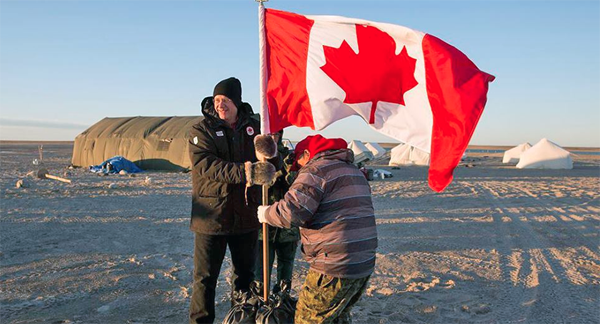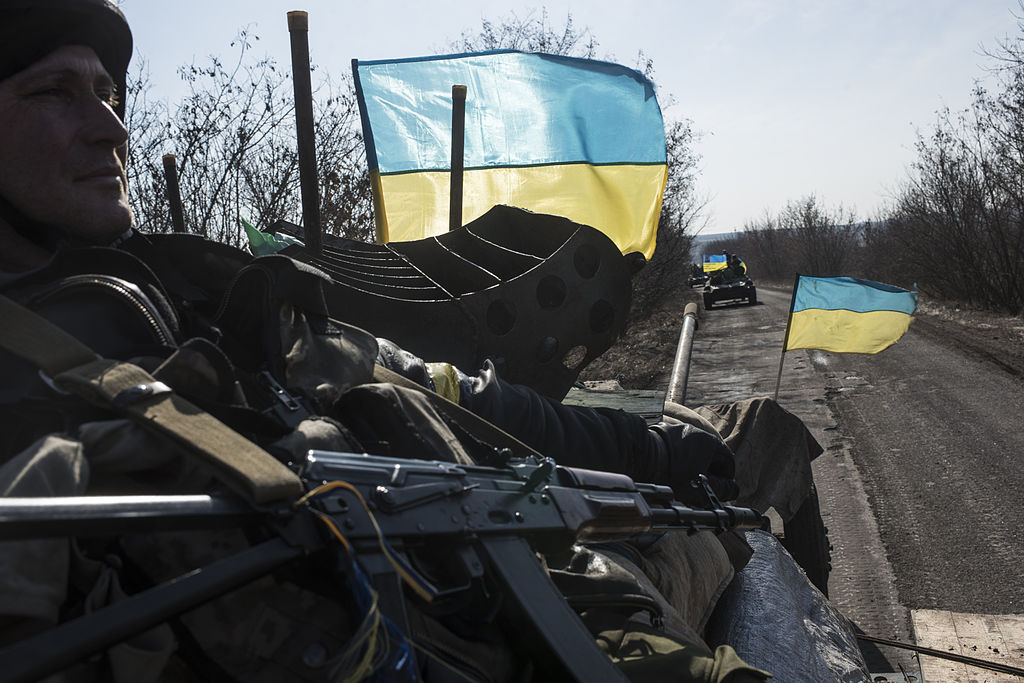In January 2018, the North Atlantic Treaty Organization (NATO) produced a report entitled “Moral Decisions and Military Mental Health”, which touches on the many ways warfare and difficult decisions undertaken by soldiers can have a long-term impact on their mental well-being. The report goes into detail about how moral dilemmas and ethical decisions made by soldiers while they are serving can be the cause for psychological distress. However, given that difficult decisions and traumatic events can often be at the core of a career in the Armed Forces what are some of the proposed solutions for ensuring that soldiers are not asked to sacrifice their mental health for the sake of their career? Canada has taken on a leading role in answering this question by consistently conducting checks, as well as research with the intent to improve and add to existing mental health-related initiatives. However, as this article will reveal, there is still much room for improvement.
At a panel held in 2009, discussions about mental health programs for soldiers revealed that the CAF have a strong suicide prevention program, which is placed in a higher regard compared to other NATO members and allies. Speakers from the panel then went on to discuss the various ways as to how the CAF have a set a strong example, by highlighting strategies to ensure that more lives are saved than lost. These include education programs for civilians, psychotherapy, resilience training, patient follow up protocol for soldiers and/or veterans who miss appointments, and “responsible media reporting” of suicides. The question posed earlier regarding how to cater to the needs of soldiers requiring mental health resources is being addressed gradually, with new forms of data collection, more efficient methods to help high-risk individuals, as well as determining why some soldiers and/or veterans are not making use of the resources readily available to them.
In June 2018, the Department of National Defence (DND) published a report regarding mental health. This report highlights the constant inspections being performed to ensure that at-risk individuals are being provided with the proper medical attention required. In addition, the consistent collection of data pertaining to suicide rates has helped this mental health program look out for warning signs and potential triggers. The DND has also implemented a system that follows the progress of individual soldiers that have attempted suicide. With that said, in order to be able to provide these medical services, those in need of treatment must of course be willing to seek help to begin with.
In addition to the initiatives taken by the DND, monitoring suicide rates has also been of great importance when it comes to remedying the problem and coming up with potential solutions to save lives. The 2016 suicide report revealed that in 2015, fourteen male Canadian Armed Forces (CAF) soldiers took their own lives, and this has consistently been the average rate from 2011- 2015. The report highlights that some potential reasons for which suicide is widespread today is due to genetic mental health conditions, spousal problems (confound variables), and job-related issues such as deployments. What’s more, there has since been an increase in suicides for reasons that are not wholly understood.
In terms of moving forward and seeing what is next for the CAF with respect to how they will deal with the issue of mental health, there are two approaches that have the potential to be successful:
First, if the Canadian government were to invest more both fiscally as well as in time spent, the CAF would be able to benefit from more research, and more efficient methods could then be developed. The Canadian government has already taken steps to initiate this suggestion by implementing new measures, beginning in 2017. These measures include an investment of $17.5 million over a four-year period by Veteran Affairs Canada (VAC), as well as an additional $9.2 million annually to create a ‘Centre of Excellence’ for PTSD and other mental health conditions. In addition, CAF and VAC unveiled a “Joint Suicide Prevention Strategy” and the Canadian government has committed to continuing to participate in research symposiums and forums (EX. Warrior Care in the 21st Century). Finally, the “Road to Mental Readiness” (R2MR) was launched in October- a mobile application that allows members of the CAF and their families to apply mental wellness skills to real-life situations.
Secondly, Canadian civilians can play a big role by making a conscious effort to ensure they are not placing any stigmas or stereotypes on personnel who come forward with their stories, and by making sure that troops have a strong presence in all conversations related to mental well-being. During the annual “Bell Let’s Talk” day, the Minister of National Defense, Harjit Sajjan, emphasized this point perfectly when he said:
“Our men and women in uniform are no different. Their uniforms are cadpat, green, blue, white and black. We don’t always see their heroic acts, and sometimes we don’t see that they need our help. It’s ok to not be ok. If you or someone you know needs helps, ask for it”.
Canada has made various strides regarding the improvement of mental health resources available to the Armed Forces personnel, nevertheless there is still a long way to go in terms of properly addressing the challenges that troops face regarding their mental health struggles. In creating more awareness of mental illness and in being more open to discussing it, Canadians can have an important impact on garnering support for soldiers (and non-soldiers alike) on a societal level.
Featured image: “You are not alone – mental health resources for CAF members and families” (2018), Department of National Defence. Public Domain. http://www.forces.gc.ca/en/caf-community-health-services/mental-health-resources.page.
Disclaimer: Any views or opinions expressed in articles are solely those of the authors
and do not necessarily represent the views of the NATO Association of Canada.




